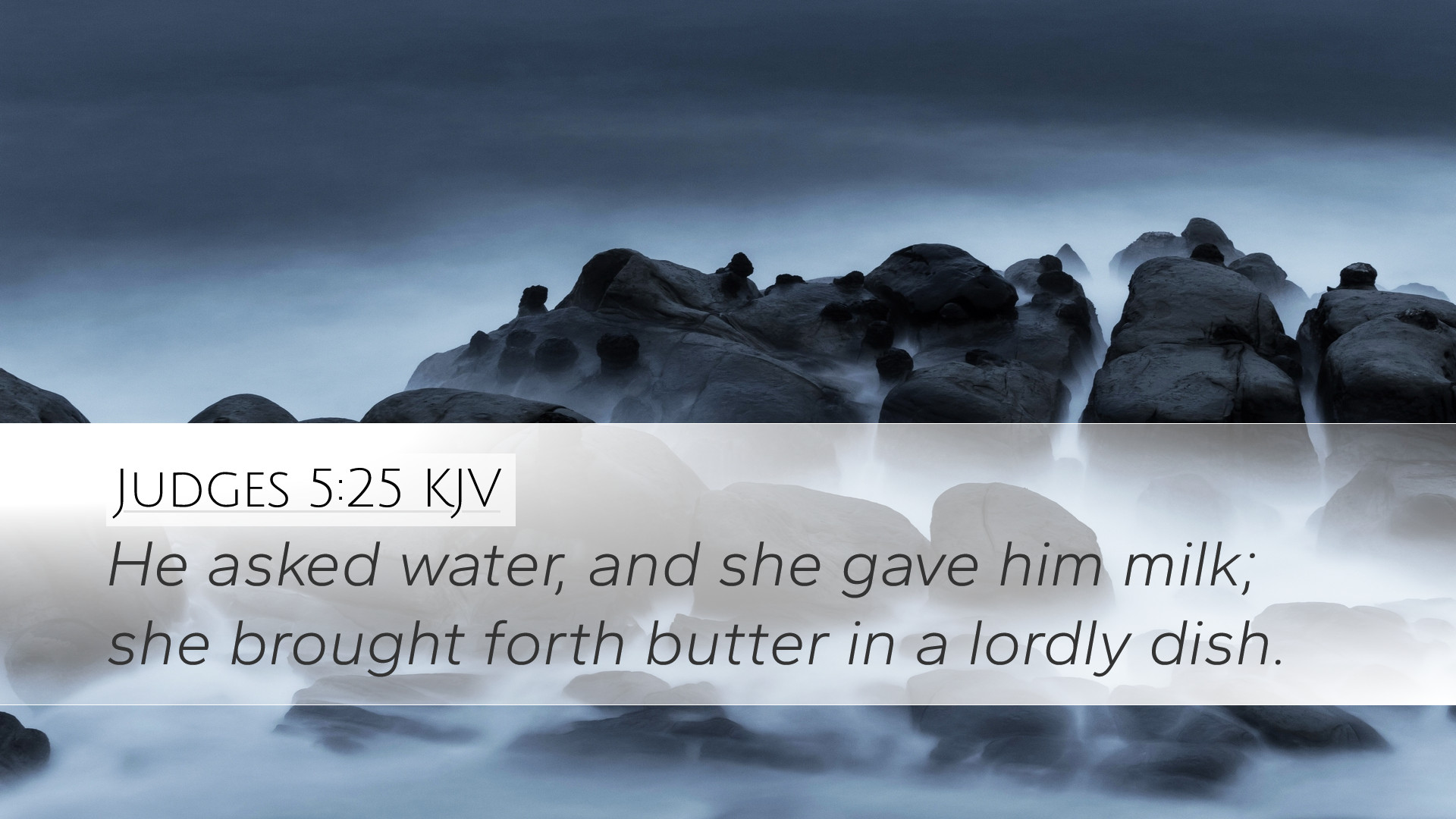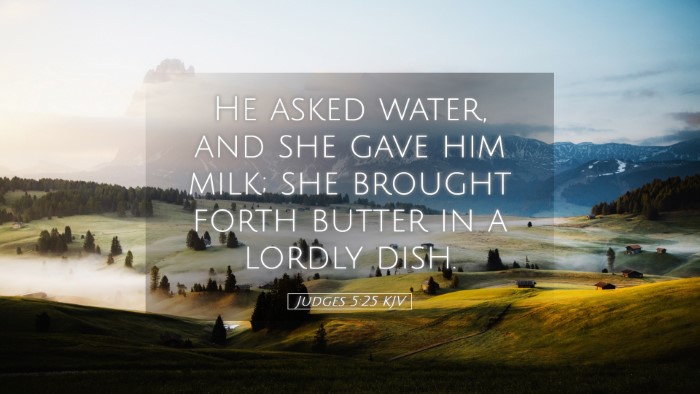Commentary on Judges 5:25
Judges 5:25 states: "He asked water, and she gave him milk; she brought forth butter in a lordly dish." This verse is part of the song of Deborah, celebrating the victory over Sisera. The context of this verse emphasizes both the hospitality extended to the weary warrior and the symbolic significance of the mother's nurturing role in the life of Israel.
Contextual Background
The chapter is a poetic recounting of the battle fought between Israel and the Canaanite king Jabin, particularly focusing on the role of Jael, the wife of Heber. Understanding the societal norms of hospitality in ancient Near Eastern cultures is key to grasping Deborah's song properly.
Exegesis of Key Themes
- Hospitality: The act of providing milk instead of water symbolizes the warmth and richness of hospitality. As Matthew Henry notes, it is a gesture rich in cultural significance—intended to not only quench thirst but also provide sustenance and comfort.
- Nurturing Role of Women: Jael’s actions (along with Deborah’s leadership) illustrate the vital part women played in God’s deliverance. Adam Clarke emphasizes the significance of Jael's actions as a demonstration of female courage and resourcefulness in the face of oppression.
- Symbolism of Milk and Butter: The provision of milk rather than water is symbolically significant. Albert Barnes notes that milk is often associated with abundance and the sweetness of life, indicating divine favor and richness of blessings after a period of struggle.
Theological Implications
Theologically, this verse can be interpreted as a reflection of God’s provision under tumultuous circumstances. In asking for water, Sisera represents those who seek comfort and relief amid distress, while the unexpected gift of milk and butter from Jael illustrates God’s abundant grace, which surpasses mere survival (the water) by offering joy and nourishment.
Deborah's Leadership
Deborah, as a prophetess and judge, embodies leadership that inspires courage. Her song serves not only as a recounting of events but also as a theological reflection on God’s deliverance. The references in her poem highlight the nature of God's engagement with His people and how He often uses the unexpected to achieve His purposes.
Insights from Commentators
- Matthew Henry: He reflects that this passage highlights the unexpected ways in which God can provide for His people. Henry notes that Sisera, unaware of Jael's intentions, assumes vulnerability in seeking help, yet he encounters divine justice.
- Albert Barnes: Barnes mentions how Jael’s offering of milk, a food associated with tenderness, reflects the stark contrast to Sisera’s violent intentions.
- Adam Clarke: Clarke emphasizes the psychological aspect of refreshment—how nourishment goes beyond the physical need and caters to healing and revival of spirit.
Application for Today
For pastors and theologians today, this passage serves as a reminder of several nuanced themes:
- The Call to Hospitality: In a world growing increasingly fragmented, providing nourishment—both physical and spiritual—acts as a fundamental expression of community and grace.
- Empowerment of Women: Jael’s courage and effectiveness in her role encourage modern believers to appreciate and honor the contributions of women in ministry and spiritual leadership.
- God’s Abundant Grace: This verse exemplifies how God’s grace often exceeds our expectations. In seeking relief (as Sisera did), the faithful may find that God's gifts are richer and more fulfilling than what they had initially sought.
Conclusion
Judges 5:25 encapsulates profound theological truths rooted in historical context. The verse not only narrates an act of hospitality but also symbolizes God's abundant provision and the significant role women play in His redemptive plan. Through the insights of respected commentators like Matthew Henry, Albert Barnes, and Adam Clarke, we glean essential lessons on divine care, community, and the unexpected ways God manifests His glory among us.


